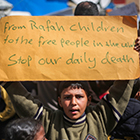
Moral Limits
Our empathy seems to make us righteous—even as we benefit from an unequal world.


Our empathy seems to make us righteous—even as we benefit from an unequal world.

The U.S. government is activating a suite of algorithmic surveillance tools, developed in concert with major tech companies, to monitor and criminalize immigrants’ speech.
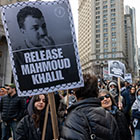
If the secretary of state can simply declare a legal permanent resident deportable based on their constitutionally protected activities, the First Amendment no longer applies to noncitizens.

Our documentary No Other Land won an Oscar, but the conditions it depicts are only getting worse.
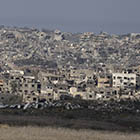
The chances for durable peace may depend on Trump’s whims.

It is hard to call people into a political project that is deeply incompatible with their sense of what it means to act morally in the world.

Israelis have seemingly grown accustomed to the atrocities of the Gaza war while continuing their day-to-day lives.

Destructive displays of technological prowess in Lebanon serve to distract the Israeli public from the military’s failure to achieve its long-stated war aims.
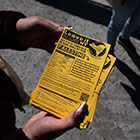
An interview with Waleed Shahid.
A reply to Gemma Sack.

While the largest diasporic population of Palestinians in the world contains strong political disagreements, they have made Chile a stalwart opponent of the war in Gaza.
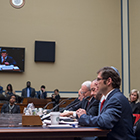
For conservatives around the world, Israel’s democratic deficit is a feature, not a bug—an alternative constitutional model that defies liberal universalism.

To insist that a movement remake itself in one’s image is not a plea for solidarity; it is a demand for obedience.

A professor’s critical support for the student protests.

The Israeli government is restricting access to food in Gaza at the same time as it is destroying healthcare infrastructure. Each process intensifies the lethal consequences of the other.